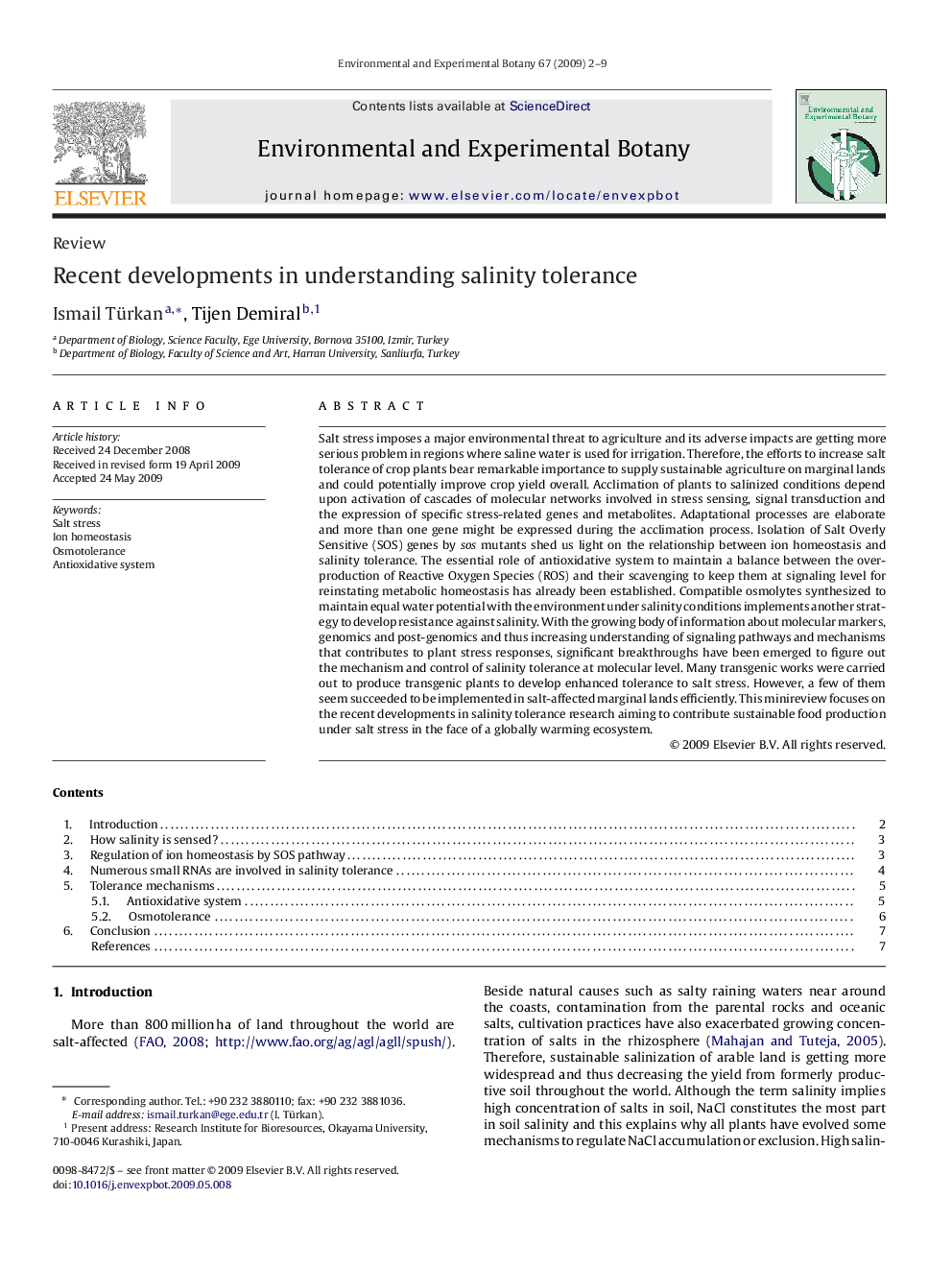| Article ID | Journal | Published Year | Pages | File Type |
|---|---|---|---|---|
| 4555027 | Environmental and Experimental Botany | 2009 | 8 Pages |
Salt stress imposes a major environmental threat to agriculture and its adverse impacts are getting more serious problem in regions where saline water is used for irrigation. Therefore, the efforts to increase salt tolerance of crop plants bear remarkable importance to supply sustainable agriculture on marginal lands and could potentially improve crop yield overall. Acclimation of plants to salinized conditions depend upon activation of cascades of molecular networks involved in stress sensing, signal transduction and the expression of specific stress-related genes and metabolites. Adaptational processes are elaborate and more than one gene might be expressed during the acclimation process. Isolation of Salt Overly Sensitive (SOS) genes by sos mutants shed us light on the relationship between ion homeostasis and salinity tolerance. The essential role of antioxidative system to maintain a balance between the overproduction of Reactive Oxygen Species (ROS) and their scavenging to keep them at signaling level for reinstating metabolic homeostasis has already been established. Compatible osmolytes synthesized to maintain equal water potential with the environment under salinity conditions implements another strategy to develop resistance against salinity. With the growing body of information about molecular markers, genomics and post-genomics and thus increasing understanding of signaling pathways and mechanisms that contributes to plant stress responses, significant breakthroughs have been emerged to figure out the mechanism and control of salinity tolerance at molecular level. Many transgenic works were carried out to produce transgenic plants to develop enhanced tolerance to salt stress. However, a few of them seem succeeded to be implemented in salt-affected marginal lands efficiently. This minireview focuses on the recent developments in salinity tolerance research aiming to contribute sustainable food production under salt stress in the face of a globally warming ecosystem.
